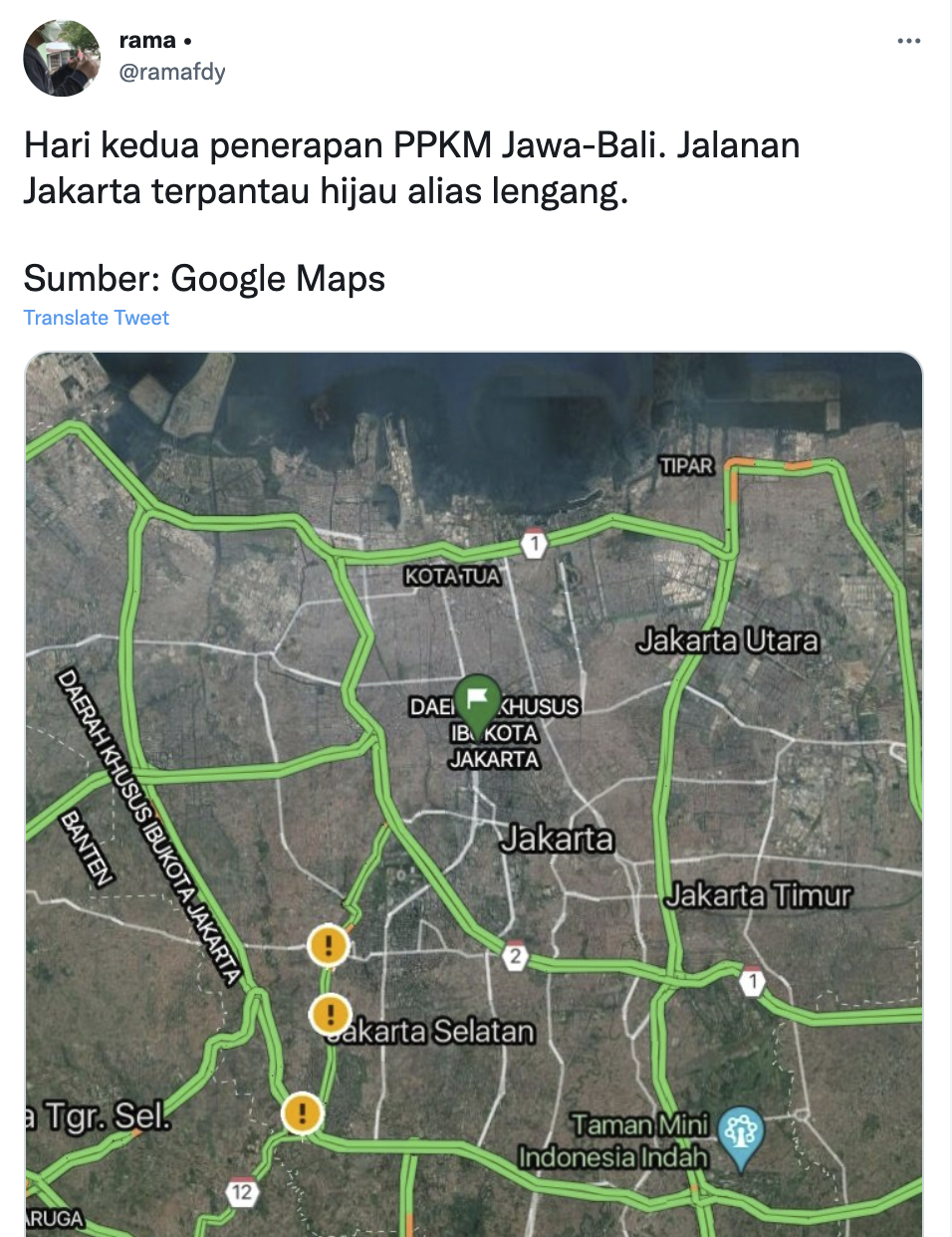PPKM Darurat didn’t improve Air Quality in Jakarta
WRITTEN BY
Adriel Kosasih and Piotr Jakubowski
PUBLISHED
19/01/2022
Here is the second part of our 2021 Insight Series, a 10 part deep dive into air quality insights that the Data Science Team at Nafas discovered over the course of 2021.
Curious to see what the other 8 insights are? Stay tuned!
–
In the pandemic era, lockdowns are happening all over the world. In most cases, as the lockdown occurred air quality would improve. In Los Angeles, air quality improved by 25%. In Delhi, air quality improved by 58% and people even saw the Himalayas for the first time in 30 years!
In Jakarta, the government has highlighted that 60% of air pollution comes from transport.This means that during a lockdown that reduces cars on the road, air quality should improve like in Los Angeles and Delhi.

(Source: CNN.com)
Fewer vehicles, less human activity = better air quality right?
According to the data analyzed by the Nafas Data Science team, it didn’t get better.
IT.GOT. WORSE.
Let's look at the chart below.
Lockdowns in 2020: No visible impact on air quality

In 2020, there were a few times during the year when Pembatasan Sosial Berskala Besar (or PSBB) was implemented to reduce social interactions and spread of COVID. For many people, this meant that offices were closed which further reduced the amount of transportation-related activities.
During PSBB 1 from April 10 - June 4, 2020, there was limited improvement in air quality. According to our Nafas sensor in South Jakarta, the average AQI during this time period was 128, which is 3 times above 2005 WHO yearly average recommendation.
During PSBB 2 which was instituted in September, air quality data had vastly improved. However, this was the result of very heavy rains and wind, causing abnormal flooding in different parts of the city.
Many people have argued, however, that both PSBB 1 and PSBB 2 weren’t really “lockdowns” and that a lot of activity was still going on.
In July 2021 after the emergence of the Delta variant of COVID, the DKI Jakarta government instituted PPKM Darurat, which effectively banned non-essential transportation and was much more strict.
Lockdowns In 2021: PPKM Darurat = Air Quality Emergency

On July 6, 2021, the government implemented Pemberlakuan Pembatasan Kegiatan Masyarakat (PPKM) Darurat, effectively stopping the non-essential movement of people around various cities in Indonesia including Jakarta.
During this time period, it was 100% work from home, malls, businesses and places of worship were closed, and special permission was required to move around the city. Even Google Maps showed 0 traffic on the road.

Surely this meant that air pollution would get better.
On the 117 sensors in Jabodetabek, air pollution got worse for the 3 weeks after PPKM Darurat started - and the range of AQI in Jabodetabek was between 112 - 169, which was around 3 - 4 times above 2005 WHO yearly average guidelines.
So what does this mean?
Transport Is Not The Only Cause of Air Pollution
What went wrong? What additional factors may have an impact on the AQI if there are fewer cars and humans? Pollution does not just originate from automobiles or other human activity; it also comes from industries, trash burning, and a variety of other sources.
Although vehicle emissions and human activities both contribute to air pollution, it appears that other sources have a far greater influence than the two most prevalent sources, which were previously believed to account for 60% of overall pollution.
–
Don’t forget to read the First Edition of our 10 Part 2021 Insight Series here: It’s the rainy season, Why is Air Quality Worse than Last Year?